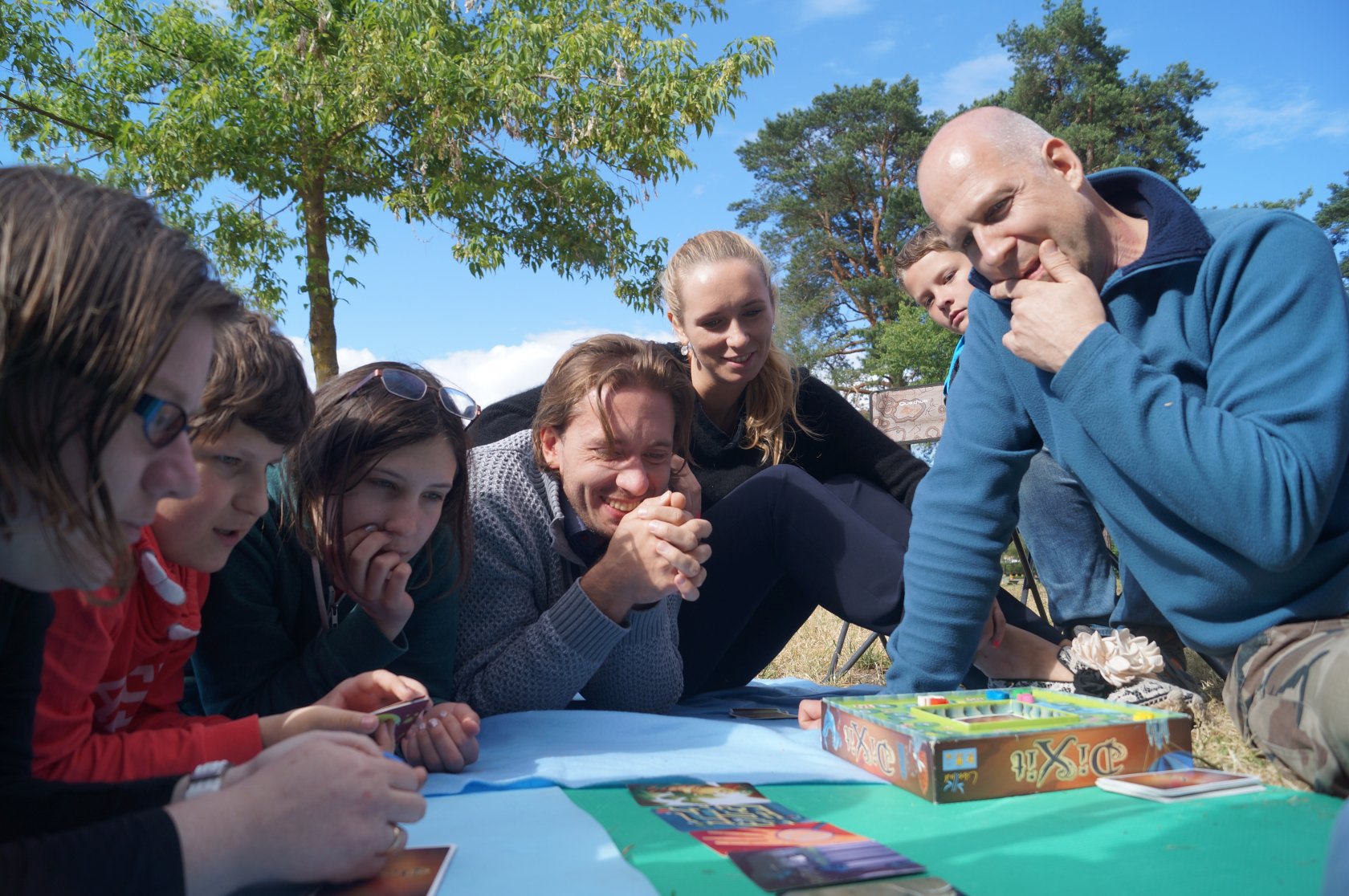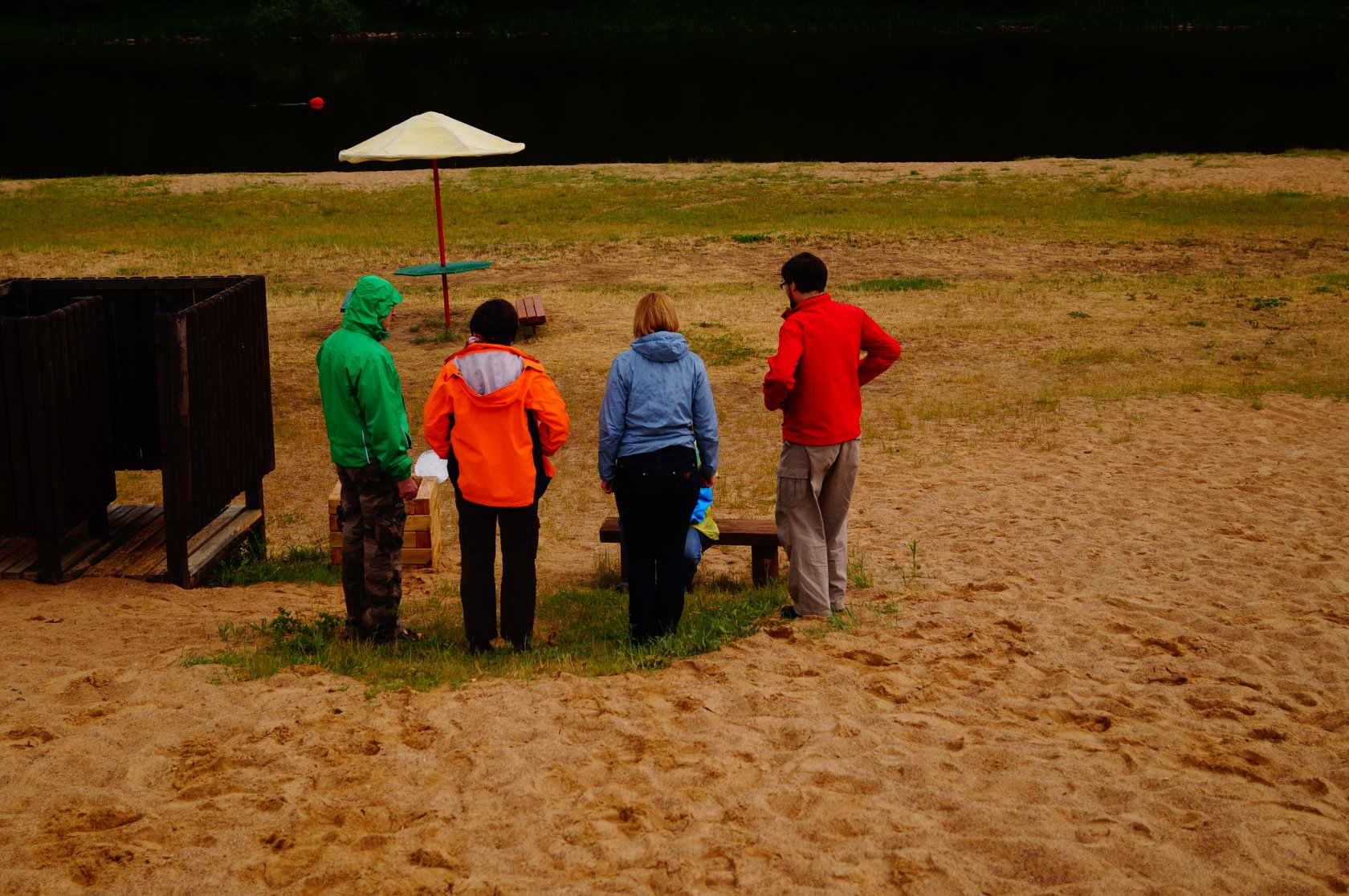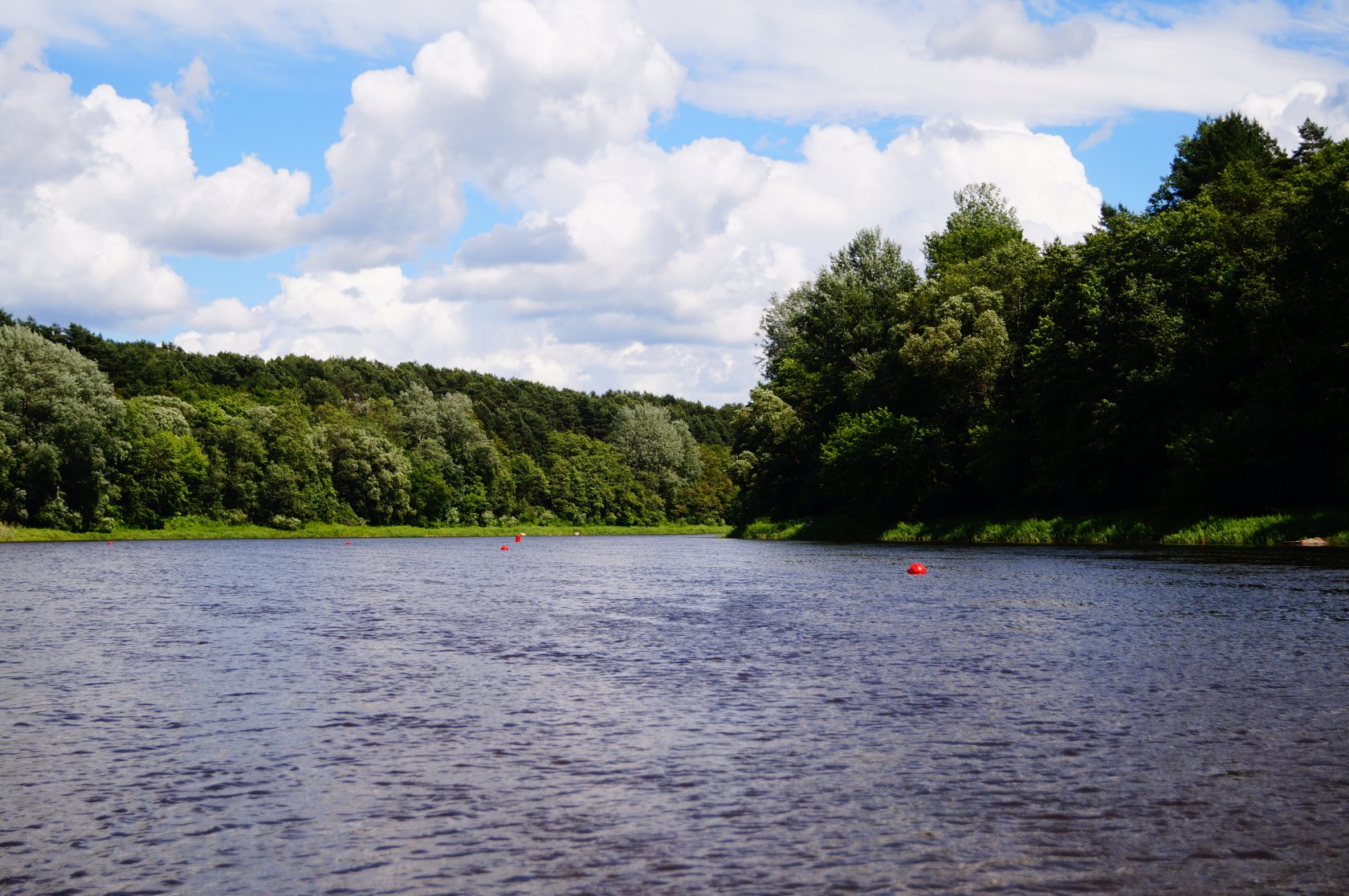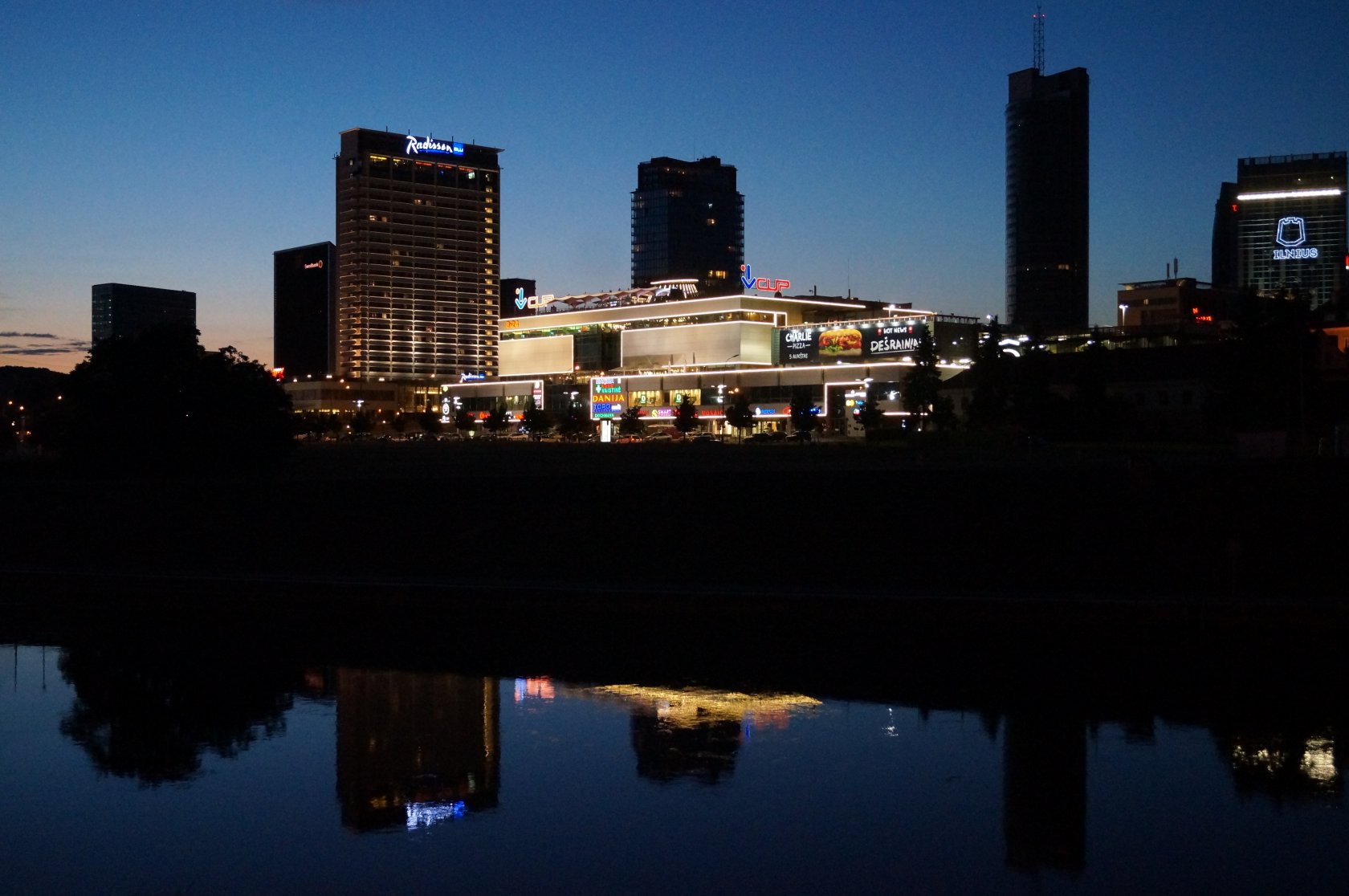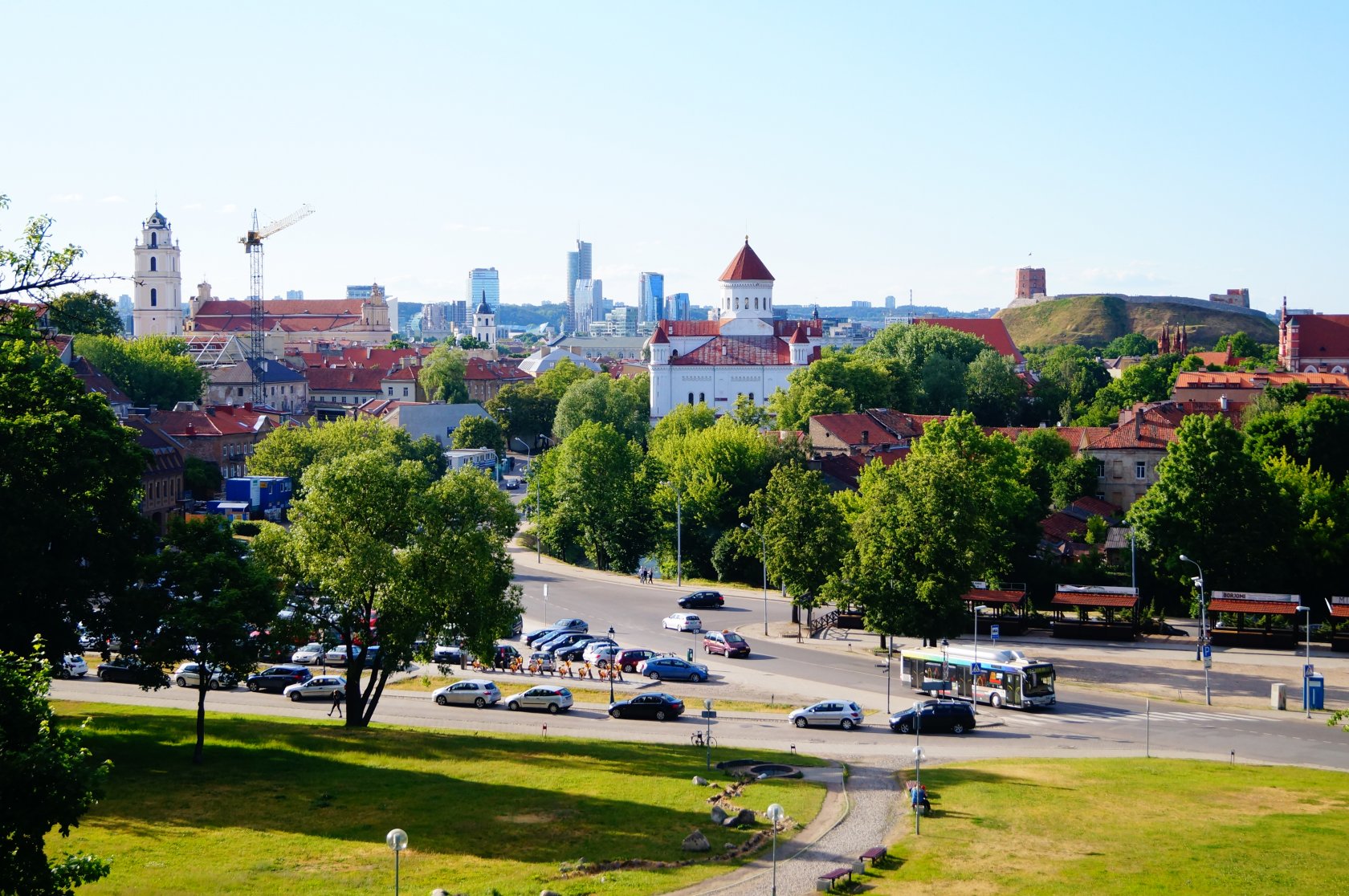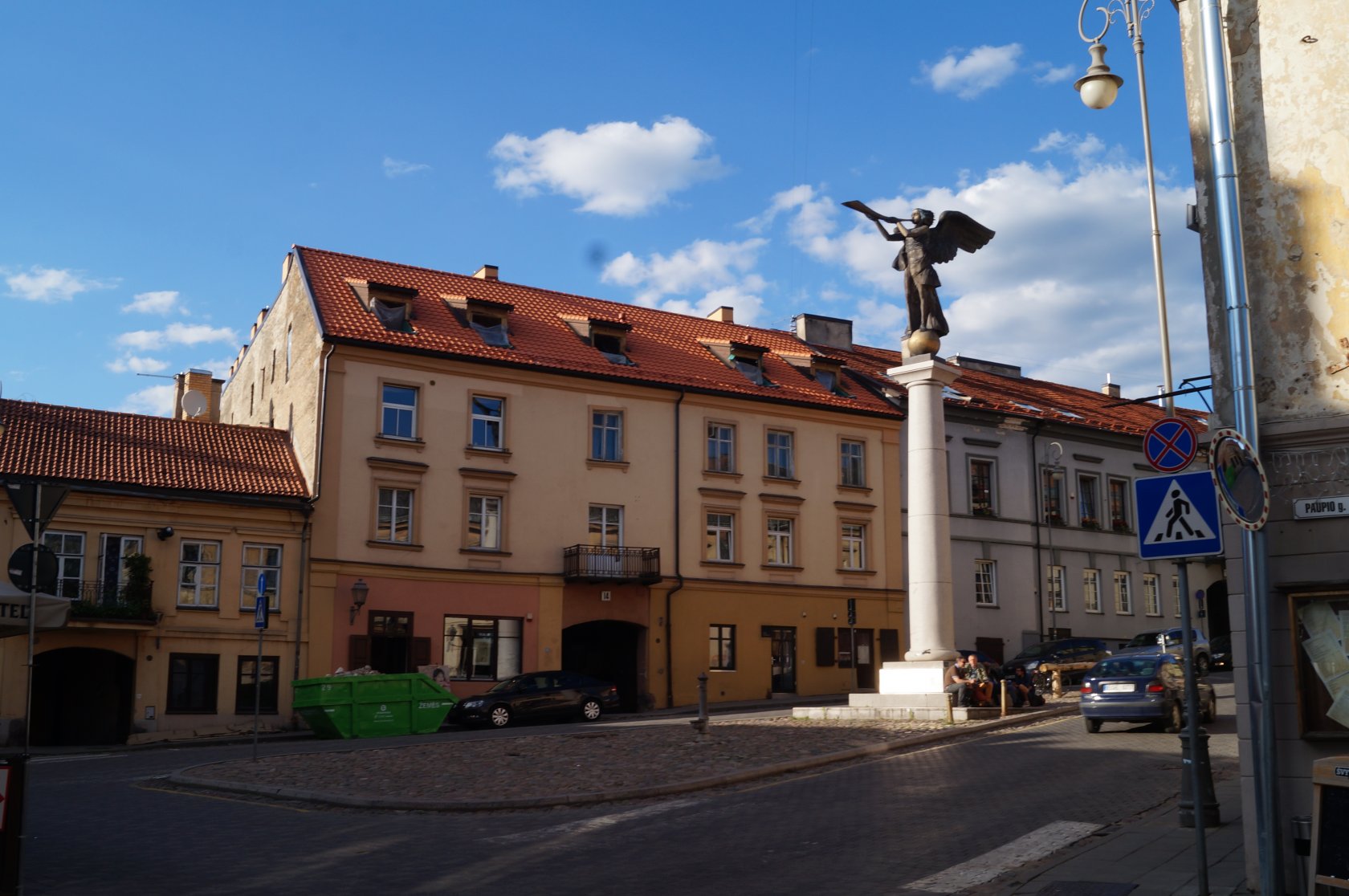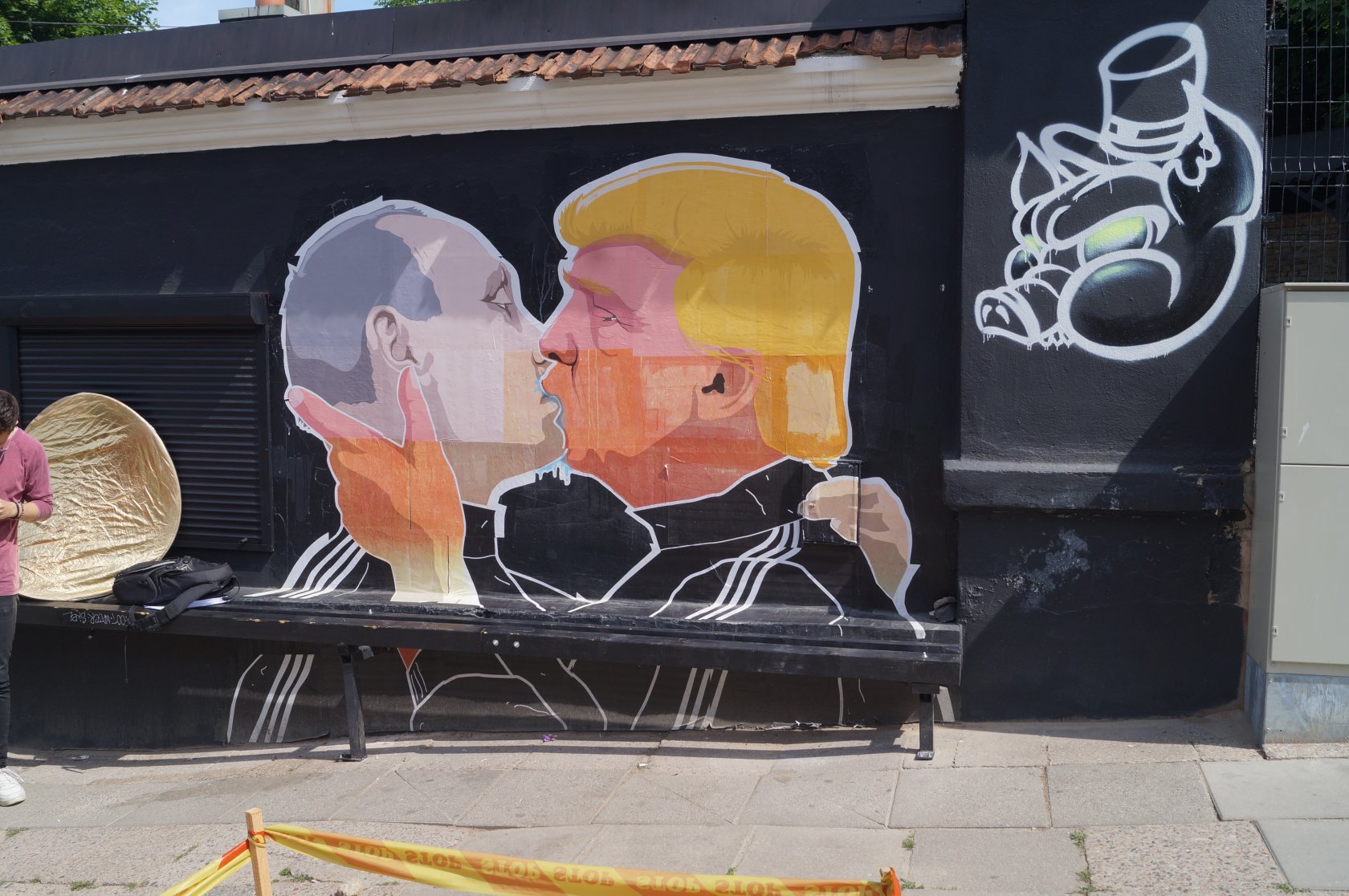Club on the green lawn
Informal club of Russian speaking emigrants in Vilnius is a little over half a year old. Its members moved to Lithuania during the last couple of years.
The main core are people from Russia joined by Belorussians and Ukranians. The community has about 50 members total. This is the first time that the meeting takes place outside. While the group is setting up the picnic, I'm talking to the club organizer Anna Antonova. She moved to Vilnius in September 2015 and works in tourism industry now.
The club members are comfortably located on the green lawn right by the river within the city. It is quiet and peaceful here with a playground nearby. Anna says that the club was created to help the migrants adapt. Here they share information on how to submit all the necessary papers, help each other to solve business issues, make friends. Almost all club members have university education predominantly in technical sciences with lots of engineers and physicists. However, there are also specialists in the humanities, who for the most part continue working remotely with the Russian companies.
Today the club members are discussing the law that obliges business-migrants to employ at least three Lithuanians. There is no other way to get a business visa to Lithuania. This amendment was officially adopted back in November 2014, but the club members are still worried about it, because this law puts at risk many individual entrepreneurs who are accustomed to cope on their own. Despite this fact, business migration to Lithuania is still popular.
The club members are comfortably located on the green lawn right by the river within the city. It is quiet and peaceful here with a playground nearby. Anna says that the club was created to help the migrants adapt. Here they share information on how to submit all the necessary papers, help each other to solve business issues, make friends. Almost all club members have university education predominantly in technical sciences with lots of engineers and physicists. However, there are also specialists in the humanities, who for the most part continue working remotely with the Russian companies.
Today the club members are discussing the law that obliges business-migrants to employ at least three Lithuanians. There is no other way to get a business visa to Lithuania. This amendment was officially adopted back in November 2014, but the club members are still worried about it, because this law puts at risk many individual entrepreneurs who are accustomed to cope on their own. Despite this fact, business migration to Lithuania is still popular.
Zeppelines and protest
Anna Antonova and Mikhail Voronkov moved to Lithuania within 6 months. She moved to Vilnius in September 2015 and he joined in March 2016. Mikhail managed to travel abroad for the first time only three years ago on a trip to Finland that seemed to him "an ideal country in all senses" at that time. However, the family failed to move there.
"It was problematic to afford Finland financially, sighs Mikhail. The language barrier and the history of the two countries also got in the way."
Mikhail calls Lithuania an economy version of Finland. "It's very peaceful here and people respect the law". According to Mikhail, important factors that influenced their choice were high quality medical care and attitude to ecology with clean water and separate collection of garbage.
"People are very positive here," admits Mikhail. "I have never felt such keen interest towards my personality in any other place."
Anna and Mikhail's family decided to leave Russia after working as independent observers during the elections in Ukrain in 2014. Together with his future wife at that time, Mikhail went to Lviv. Less than one third of the declared Russian observers managed to get to the polling stations. Mikhail and Anna met local people and watched TV, both local and Russian. On Russian TV the Ukranian elections were called "bloody" and Russian observers were labeled as "traitors". The reality observed by Mikhail and Anna had nothing to do with the TV picture.
"Elderly women often approached me pulling my sleeve and asking "Why are you killing our boys in Donbass?" bitterly recalls the activist.
Upon their return to Moscow, the young couple decided to leave Russia forever. Anna is a historian, she also speaks Italian, Spanish and French, so it was easy for her to find a job in tourism. After obtaining the residence permit, the second step of "reuniting with the family" stretched for another half a year. Mikhail managed to move to Vilnius only in March. After multiple futile attempts to get a work permit in Lithuania without a university diploma, he found a business partner and opened an IT company in Lithuania.
Gastronomy became the family's new hobby. They have found out that the food prices in Vilnius are lower than in Moscow.
"Not so long ago large trading chains made a significant increase in prices for the main food categories," shares his experience Mikhail. "Then, people initiated a counter measure on Facebook. Locals just refused to buy anything for three days in a row. This timeframe was chosen because of the short shelf life of such products as meat, milk, and fish. There is no tradition of weekly grocery shopping in Lithuania, because people cook everything with fresh food. The protest resulted in the prices going back down. Such situation is impossible in Russia."
Mikhail and Anna say that they found themselves in Lithuania. They have free time now. They have started to feel appetite for life. They often experiment in the kitchen, Mikhail makes home kvas. They are also planning to learn how to cook zeppelins – special potato bits.
Anna Antonova and Mikhail Voronkov moved to Lithuania within 6 months. She moved to Vilnius in September 2015 and he joined in March 2016. Mikhail managed to travel abroad for the first time only three years ago on a trip to Finland that seemed to him "an ideal country in all senses" at that time. However, the family failed to move there.
"It was problematic to afford Finland financially, sighs Mikhail. The language barrier and the history of the two countries also got in the way."
Mikhail calls Lithuania an economy version of Finland. "It's very peaceful here and people respect the law". According to Mikhail, important factors that influenced their choice were high quality medical care and attitude to ecology with clean water and separate collection of garbage.
"People are very positive here," admits Mikhail. "I have never felt such keen interest towards my personality in any other place."
Anna and Mikhail's family decided to leave Russia after working as independent observers during the elections in Ukrain in 2014. Together with his future wife at that time, Mikhail went to Lviv. Less than one third of the declared Russian observers managed to get to the polling stations. Mikhail and Anna met local people and watched TV, both local and Russian. On Russian TV the Ukranian elections were called "bloody" and Russian observers were labeled as "traitors". The reality observed by Mikhail and Anna had nothing to do with the TV picture.
"Elderly women often approached me pulling my sleeve and asking "Why are you killing our boys in Donbass?" bitterly recalls the activist.
Upon their return to Moscow, the young couple decided to leave Russia forever. Anna is a historian, she also speaks Italian, Spanish and French, so it was easy for her to find a job in tourism. After obtaining the residence permit, the second step of "reuniting with the family" stretched for another half a year. Mikhail managed to move to Vilnius only in March. After multiple futile attempts to get a work permit in Lithuania without a university diploma, he found a business partner and opened an IT company in Lithuania.
Gastronomy became the family's new hobby. They have found out that the food prices in Vilnius are lower than in Moscow.
"Not so long ago large trading chains made a significant increase in prices for the main food categories," shares his experience Mikhail. "Then, people initiated a counter measure on Facebook. Locals just refused to buy anything for three days in a row. This timeframe was chosen because of the short shelf life of such products as meat, milk, and fish. There is no tradition of weekly grocery shopping in Lithuania, because people cook everything with fresh food. The protest resulted in the prices going back down. Such situation is impossible in Russia."
Mikhail and Anna say that they found themselves in Lithuania. They have free time now. They have started to feel appetite for life. They often experiment in the kitchen, Mikhail makes home kvas. They are also planning to learn how to cook zeppelins – special potato bits.
Anna Antonova and Mikhail Voronkov
****
We asked emigrants of the new wave if they communicated with Russians from the previous waves. But they say that those who arrived during the Soviet years dissolved like a handful of salt in the sea water.
Old-timers confirm it, too.
"Very few people moved from Russia to Lithuania," says an employee of a Lithuanian radio station speaking about the Soviet epoch. "It was mostly creative intelligentsia, elderly artists and musicians. They are not with us anymore. The younger ones wanted to get to the West through Lithuania. When Lithuania joined the European Union in 2004, their dream came true."
We asked emigrants of the new wave if they communicated with Russians from the previous waves. But they say that those who arrived during the Soviet years dissolved like a handful of salt in the sea water.
Old-timers confirm it, too.
"Very few people moved from Russia to Lithuania," says an employee of a Lithuanian radio station speaking about the Soviet epoch. "It was mostly creative intelligentsia, elderly artists and musicians. They are not with us anymore. The younger ones wanted to get to the West through Lithuania. When Lithuania joined the European Union in 2004, their dream came true."
Views of Vilnius
